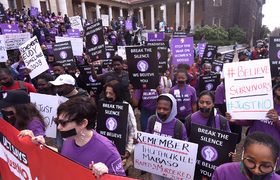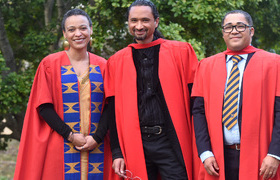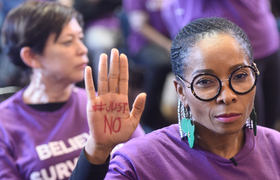Counselling skills boost for housing, residence staff
06 August 2019 | Story Carla Bernardo. Photos Michael Hammond. Read time 6 min.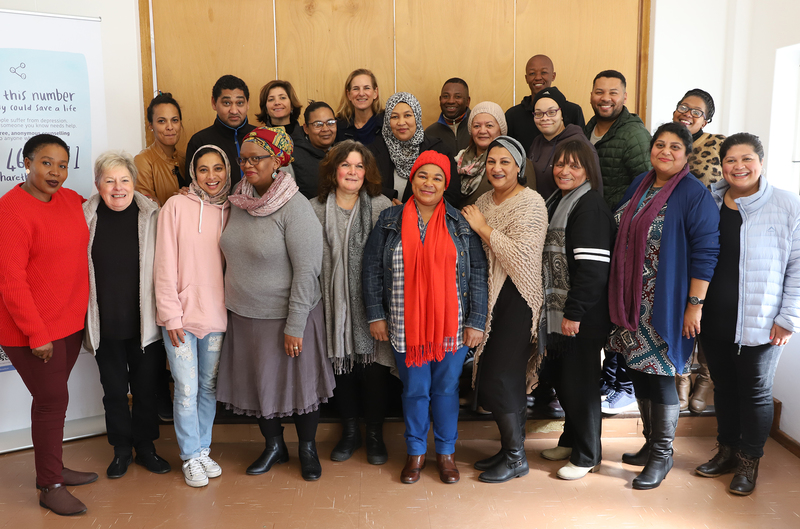
Work to create a community of care at the University of Cape Town (UCT) has received a significant boost thanks to a recently concluded LifeLine training course conducted with Student Housing & Residence Life (SH&RL) staff.
At the end of July, more than 40 frontline staff, residence facilities officers (RFOs), residence facilities assistants and front desk assistants from SH&RL completed an eight-week, tailor-made course with the LifeLine Western Cape counselling and support organisation.
The aim of the training was to provide staff with an opportunity for self-reflection, to ensure that transference of work-related matters to their own families was reduced, and to provide basic counselling support for students and staff.
These needs were identified in 2018, following an emotional resilience workshop organised by UCT’s Organisational Health, Appointments and Benefits unit within the Human Resources department and Independent Counselling and Advisory Services (ICAS), the university-appointed service provider for staff wellness.
A report generated from the workshop detailed how staff were being burdened by additional high-pressure responsibilities outside of their operational tasks. Some of this was because SH&RL staff are often the first point of contact for distressed students and, while they want to help, this inevitably took its toll both mentally and in terms of their work deliverables.
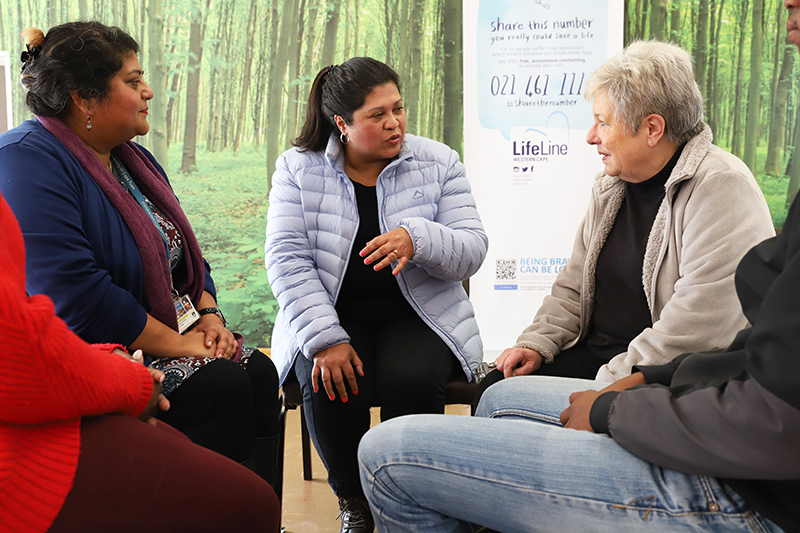
Tailor-made course
In response, senior coordinator for residence facilities Shanaaz Sonday approached the Organisational Health, Appointments and Benefits unit, and together they asked LifeLine to put together a tailor-made course for the UCT staff.
The course was a condensed version of LifeLine’s training for counsellors and saw staff members learn about themselves, uncovering personal triggers and examining masks they may be wearing to hide their true emotions. They also learnt basic counselling skills, including how to work around conflict, discrimination, prejudice, body language and empathy.
“They are so much more self-aware and so much more willing to look at their own vulnerability.”
“They are so much more self-aware and so much more willing to look at their own vulnerability,” said Glynis Depper, LifeLine counselling consultant and the lead facilitator for the course.
“They certainly know to rather connect with the person than the problem that is being presented.”
Sonday, who took part in the course, said the training was a real “eye-opener”. She found the self-reflection most enlightening as it gave her the opportunity to examine her skills and her engagement with others, and analyse whether she was doing the necessary self-care.
“I can actually critically look at myself and wipe away some of the preconceptions that I have,” she said.
Journey of discovery
Sonday is excited to see how the training will affect her management style and how she and her colleagues will use their new tools to meet the goals of the university.
“It is an ongoing journey of discovery,” she said.
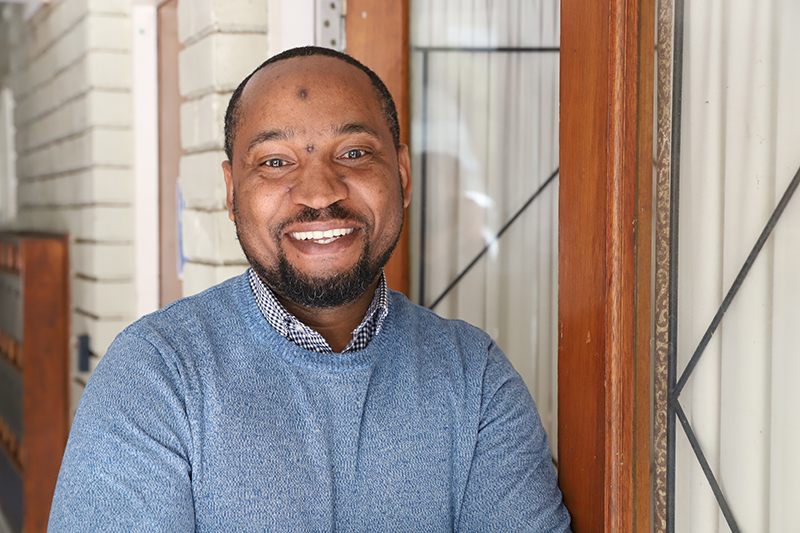
Initially, Malusi Stenge, the RFO at Kopano Residence, felt uneasy about the course because he didn’t know what to expect. But the LifeLine facilitators very quickly put their training into context, discussing depression and overall mental health both at UCT and throughout the country.
“We are being equipped with how to deal with such issues when students come to us for help, to identify students who are struggling mentally, and in our homes and our communities.”
He said while they were taught basic counselling skills, he feels confident that he can now better serve his students as well as staff.
Carmencita Kerchhoff, a residence facilities officer at Forest Hill, took full advantage of the course.
“It has been absolutely fantastic, amazing, all of the above! And it’s so relevant.”
“It has been absolutely fantastic, amazing, all of the above! And it’s so relevant,” she said.
At Forest Hill, which houses more than 800 students aged from their early 20s to mid-50s, several challenges faced by students have come to the attention of staff. These include feeling isolated from the rest of the residence community and struggling to make ends meet.
During their scheduled health and safety checks in the flats, Kerchhoff and her team are alerted to “red flags”: a lack of blankets, clothing and food as well as a room that is in disarray.
Usually, the team will try to contact the student and see how they can support them, but sometimes differences, such as those along gender or cultural lines, make these attempts tricky. Now, Kerchhoff said, she has new tools to help break down barriers.
“What LifeLine has done is give me the tools to actually start that conversation.”
A major lesson for her was the realisation that she has to be “very intentional about making that connection and building that relationship”. She has started using her new skills at home where she has already seen positive results with her two daughters.
“It’s really, really been a worthwhile investment of my time, energy and the university’s money,” said Kerchhoff.
 This work is licensed under a Creative Commons Attribution-NoDerivatives 4.0 International License.
This work is licensed under a Creative Commons Attribution-NoDerivatives 4.0 International License.
Please view the republishing articles page for more information.








